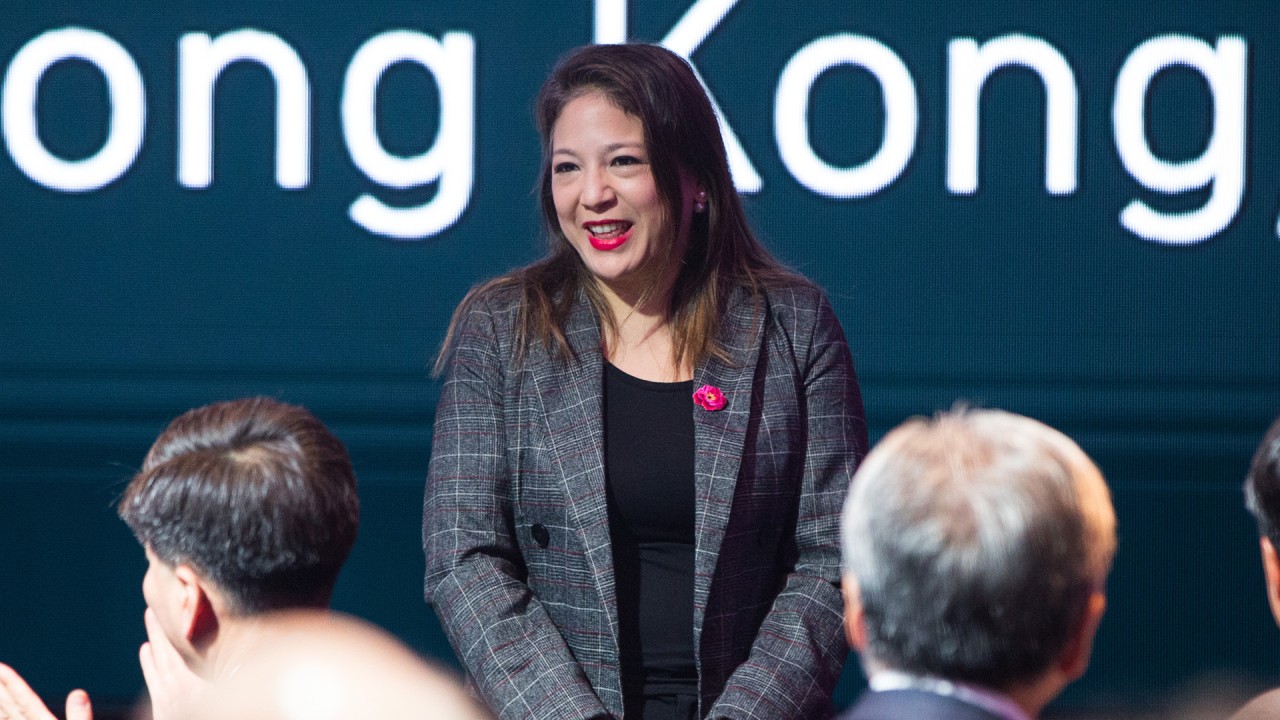
Retirement: some Hong Kong employees dream of it, others dread it. Will introducing a statutory age make a difference?
- Less educated Hongkongers with few skills want support to continue working as long as they can
- Experts say fixed retirement age has pluses, but may upset bosses and those keen to stop working sooner
Hong Kong cabby Yu Kwong-hon has not forgotten how helpless and despondent he felt when he turned 55 and had to retire from the logistics firm where he had been a fleet supervisor for 11 years.
“That was the company policy, so I had no choice. But I was penniless and at a loss, not knowing what to do next,” he said. “I still had three teenage children to raise and my wife was just a casual worker. I didn’t have other expertise and the future looked very bleak.”
Yu said he had wished to continue working, as he was still fit and capable of carrying on doing what he knew so well. He eventually became a taxi driver, a job with no retirement age that allowed him to provide for his family.

“There is not much choice for older people like me, without a good education and special skills,” Yu, now 72, said. “Taxi driving is a self-employed job which guarantees an income regardless of age. The harder you work, the more you earn.”
With his children having grown up now, he works three weeks a month and earns about HK$10,000 (US$1,276).
Why Hongkongers are in tug of war with ‘old school’ bosses over returning to office
Older Hongkongers who want to continue working, particularly those less educated with few options, have called on the government to introduce a statutory retirement age and elderly friendly policies to safeguard and promote the employment of people in their 50s, 60s and beyond.
Experts recognise the advantages of doing so as the city grapples with a manpower crunch made worse by a brain drain and a rapidly ageing population.
But some caution that fixing a retirement age could spark resistance, not only from employers but also those who prefer to stop working earlier.

Fixing retirement age ‘no easy matter’
With no statutory retirement age or laws to mandate the re-employment of older people, Hong Kong lags behind other societies with greying populations that protect jobs for seniors.
In the United Kingdom, the state pension age of 66 is set to rise to 67 in phases between 2026 and 2028, and then to 68 between 2044 and 2046.
In Singapore, the official retirement age is 63 and employers must offer re-employment, renewable every year, to eligible employees up to age 68, as long as they are willing and fit to continue.
Japanese companies must ensure employment up to 65, with a host of grants and subsidies to employers who comply.
‘4,500 days to retire’: woman’s ‘job slave’ calendar shows China’s changing youth
Hong Kong has been stuck in a long-running debate over whether a statutory retirement age would bring more benefits than disadvantages by easing the labour shortage and helping to defuse social time-bombs such as the snowballing welfare price tag.
The number of people aged 65 and above rose over the past 50 years from 180,000 in 1971 to 1.45 million in 2021.
Over-65s currently account for one in five of the city’s 7.33 million population and are projected to swell to more than one in four in 2028, and then to more than one in three in 2069.
Hong Kong has been ranked No 1 worldwide for longevity and according to the World Bank, an infant born in the city in 2020 can expect to live to 85.4 years.
Last year, 499,500 people over 60 were still in the workforce, up from 161,200 in 2012.
3,500 Hong Kong teachers quit, cashing out HK$10 billion from provident fund
The city last year also suffered the biggest drop in its working population since records began in 1985, losing more than 94,000 employees, including many who left in a wave of emigration. The number who quit the labour force over the past four years totalled 220,500.
Without a statutory retirement age, Hong Kong has left the private sector to decide for itself and it is mostly 60 to 65, with renewable contracts agreed by both sides.
For government employees, the retirement age for recruits was extended from June 2015 to 65 for civilians and 60 for disciplined service officers, regardless of rank.
The Mandatory Provident Fund (MPF), a compulsory pension fund to which employees and employers contribute, also serves as a reference. It allows full withdrawal of savings at age 65 except in certain circumstances.
Women in Asia insecure about retirement, but fear investing is not for them
Job support for the elderly has been limited too. The Labour Department’s employment programme for middle-aged and older workers includes an on-the-job training allowance to encourage employers to hire this group.
Employers who hire unemployed people aged 60 and older can receive up to HK$5,000 per month per eligible worker for six to 12 months. Since the allowance was raised in September 2020, more than 3,000 applications were approved as of March this year.
Lawmaker Chau Siu-chung, of the Federation of Hong Kong and Kowloon Labour Unions, said the government should seriously consider introducing a statutory retirement age for the advantages it would bring.
“As many of those aged 60 or above are still physically fit, the government should make use of this group in the labour force so they can continue to contribute to society,” he said, adding that the welfare burden would be eased if older people continued working.
‘Don’t want to play mahjong’: Chinese retiree says selling squid means happy life
But he acknowledged that this was a complex issue requiring flexibility to meet the different expectations of employers and employees.
“This is not an easy matter,” he said. “There is a social consensus that people can retire from the age of 60. What should be the appropriate age for retirement – 65? What about those who want to retire early? This is the question.”
Chau said in deciding a statutory retirement age, the government should allow flexibility for employers and employees to agree on the terms.
‘Elderly prefer jobs, not handouts’
Others, however, argued there was no need to impose a retirement age, and the government should leave the market to decide.
Economist Simon Lee Siu-po, an honorary fellow at the Asia-Pacific Institute of Business at Chinese University, said a rigid official retirement age would make the employment of older people even worse.
Preferring to leave things flexible, he said: “I ran into a grandma aged over 70 working in a McDonald’s outlet and she was still in good shape and communicated well with her customers.
“It shows that some companies have no problem hiring seniors who are willing to work. That’s why there is no need to introduce a rigid law setting a retirement age. Just let the market dictate it.”
Flexibility meant allowing people in some jobs or professions to work longer if there was a need.
For example, he said, teachers at some public schools who were mandated to retire at 60 should have their retirement age extended as the education industry was facing a manpower crunch and badly needed experienced workers.
Raising China’s retirement ages won’t ‘make a big difference’ in workforce size
“The labour market should be operated on the basis of supply and demand. If the authorities impose a retirement age, this may backfire and cause many adverse effects as some people like to retire early,” he said.
“It may become a legal weapon for the employers to stop their employment and import foreign labour.”
Lee said it would be hard to arrive at the “right” retirement age. “Different professions have different demands and it’s difficult to apply the same retirement yardstick to all sectors. This has to be carefully studied,” he said.
Nelson Chow, emeritus professor at the University of Hong Kong’s social work and social administration department, agreed, preferring employers to decide.
“If the retirement age is extended to, say, 67, there may be repercussions and political implications as people may need to wait longer before they can get back their MPF,” he said.
“The focus should not be whether there should be a statutory retirement age in Hong Kong. Rather, we should focus on facilitating employment of the elderly who are mostly not well educated and can only do unskilled work.”
Chow and lawmaker Chau suggested that the government offer incentives to encourage employers to hire older workers, retraining programmes to help them switch to new jobs, and more part-time work opportunities.
Chow said: “It is tough for the elderly to continue to work full time if it requires a lot of physical strength and hard labour. Part-time jobs will be more suitable for them.”
A spokeswoman for the Labour and Welfare Bureau said the government had been trying to unleash the potential of middle-aged and older workers to meet changing manpower demands by providing retraining opportunities, holding career fairs and offering job-matching services.
“The government will continue to review and enhance employment measures, taking into account the employment needs of the elderly and middle-aged persons,” she said.
‘Wish him a long life’: octogenarian doctor works every day, rain or shine
Sze Lai-shan, deputy director of the Society for Community Organisation, a non-governmental advocacy group helping the poor, said apart from creating more part-time jobs, the government could introduce community work with allowances to encourage older people to take part in social activities.
She said one way would be to lower the threshold for the elderly to apply for the working family allowance like single parents, allowing them to work for a minimum of 36 hours a month to receive the basic allowance. Currently, they have to work 144 hours.
“Not all old people are looking for handouts,” Sze said. “They take pride in going out to work and find spiritual sustenance from it.
“By providing them less strenuous part-time jobs or community work, they can feel connected to society and have a source of motivation in life, instead of being stuck at home feeling old and useless.”

Ho Ka-to, 73, who rents a bunk bed space in Yau Ma Tei for HK$1,600 a month, said he was in a state of distress after he had to retire at 65 from his job as a printing factory technician.
Having no savings, he went from earning HK$14,000 a month to being penniless after using up his HK$50,000 pension funds.
“I felt very agitated after retirement. I was always worried about having no money to feed myself,” he recalled.
“I tried many jobs but nothing worked out. Security guard? I don’t have computer knowledge. Warehouse worker? I am not physically fit. It was so hard for me to get a full-time job. This was the reality.”
He now earns about HK$2,000 a month as a casual worker and receives a monthly elderly allowance of HK$4,000.
Cabby Yu said he was thankful that driving a taxi allowed him to continue to make ends meet and support his family, or they would have faced destitution.
“I really love to work and don’t want to idle away my time,” he said. “Elderly people need a sense of meaning to carry on with life, otherwise they will wither away very soon from boredom.”



